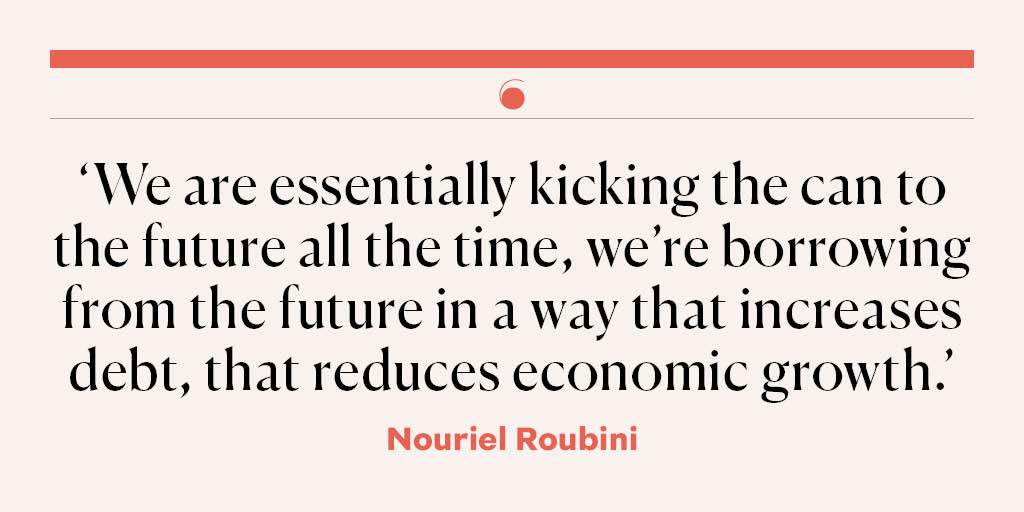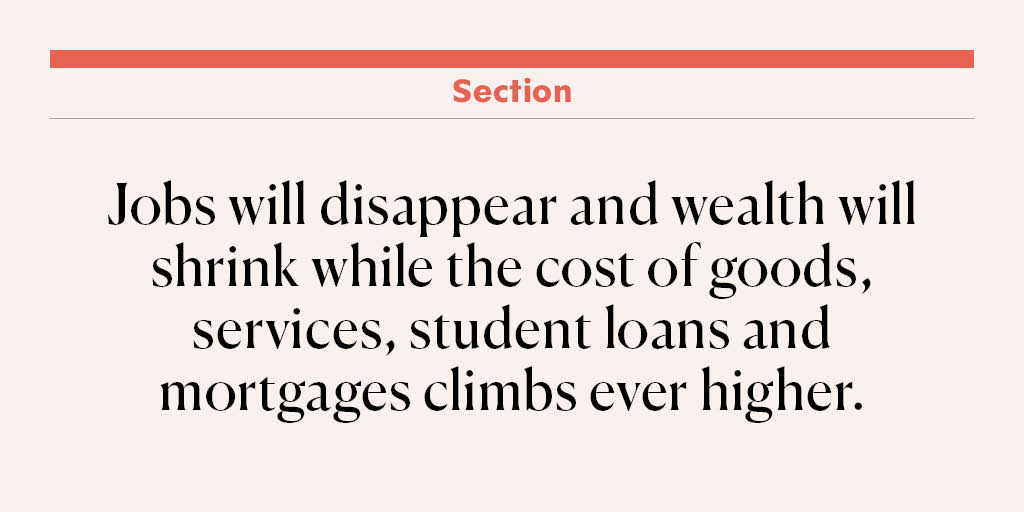
The economist who predicted the 2008 crash warns that a combination of uncontrolled inflation and ballooning debt will push the world economy into ruin.
@willydunn speaks to @Nouriel.
newstatesman.com/economy/2022/1…
@willydunn speaks to @Nouriel.
newstatesman.com/economy/2022/1…
If Roubini is right in his assessment of the world economy, the next decade will contain mass unemployment, mass personal bankruptcy and business insolvency, a severe, protracted recession, and a wave of financial crises and defaults in countries around the world. 

Roubini’s predictions were playing out in the UK economy as the economist and @willydunn spoke: a disastrous fiscal plan, a panicked sell-off of government debt, a central bank forced to intervene, waves of political and economic instability.
The UK is the first of the advanced economies to become destabilised by a situation Roubini described as combining the “the worst of the Seventies” in terms of supply shocks, with a debt bubble that makes even that which precipitated the 2008 global financial crisis look modest. 

By his estimate, the average advanced economy is carrying more than four times its own GDP in combined public and private debt: this is, Roubini said, “the mother of all debt crises”.
It doesn’t stop there. The balance sheets of advanced economies are not just groaning with debt but riddled with “unfunded liabilities” – things we were supposed to have paid for up front, but which we’ve neglected in favour of illusory growth and consumerism.
Unfunded liabilities are what keep pension fund managers awake at night, and advanced economies all face the prospect of a dwindling number of workers paying for a retired majority.
But Roubini said the liabilities are so much broader:
“There is an implicit debt coming from global climate change, from future pandemics, from the need that we’re going to have to subsidise permanent technological unemployment, deriving from AI and automation.”
“There is an implicit debt coming from global climate change, from future pandemics, from the need that we’re going to have to subsidise permanent technological unemployment, deriving from AI and automation.”

As politicians and central banks find themselves powerless to address these growing crises – or “megathreats”, as he called them, advanced economies will move into a situation he described as a “stagflationary debt crisis”.
This is a three-way economic pile-up: inflation that central banks can’t solve, a recession that governments can’t stop, and a debt crisis that markets can’t alleviate. 

While other economists warn of “Japanification” – permanent economic stagnation – Roubini is more worried about what might be called Argentinification, in which a massive debt burden causes recurring financial crises.
Read the full interview: newstatesman.com/economy/2022/1…
Read the full interview: newstatesman.com/economy/2022/1…
• • •
Missing some Tweet in this thread? You can try to
force a refresh






